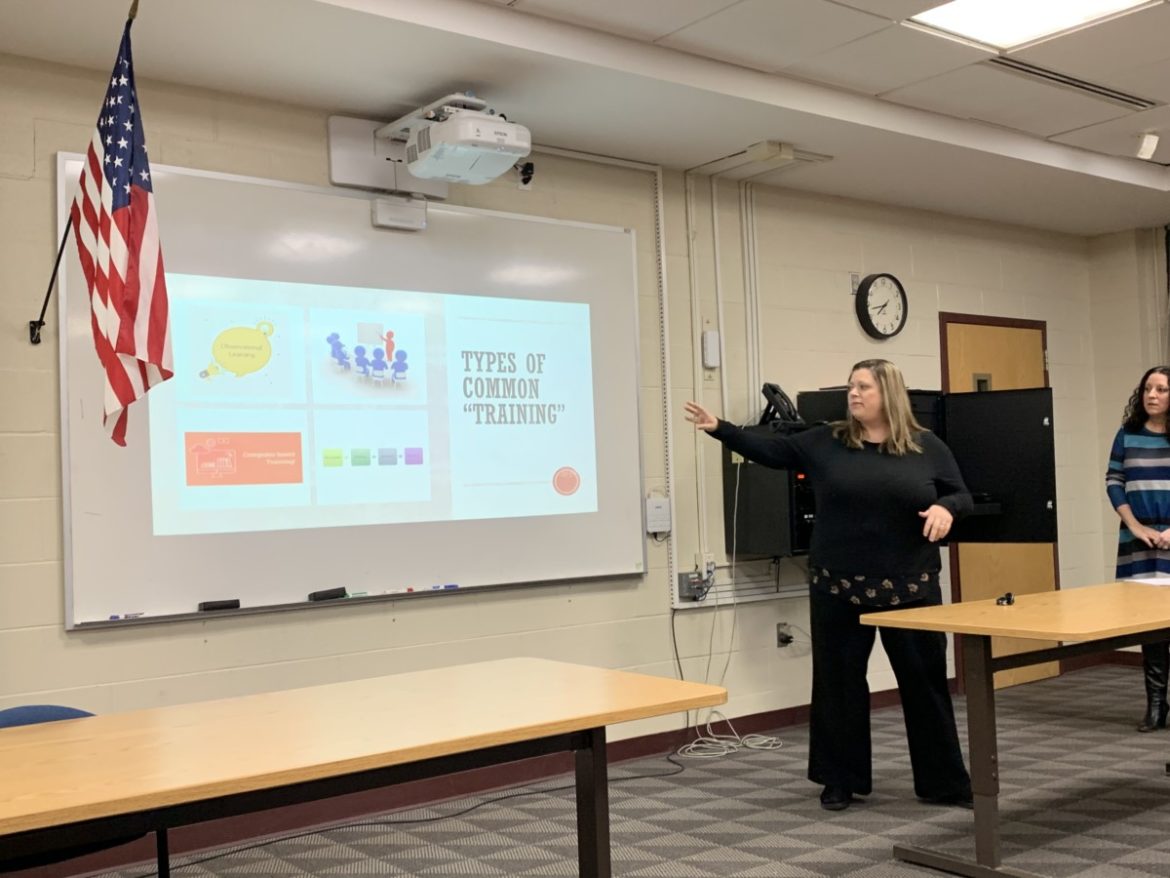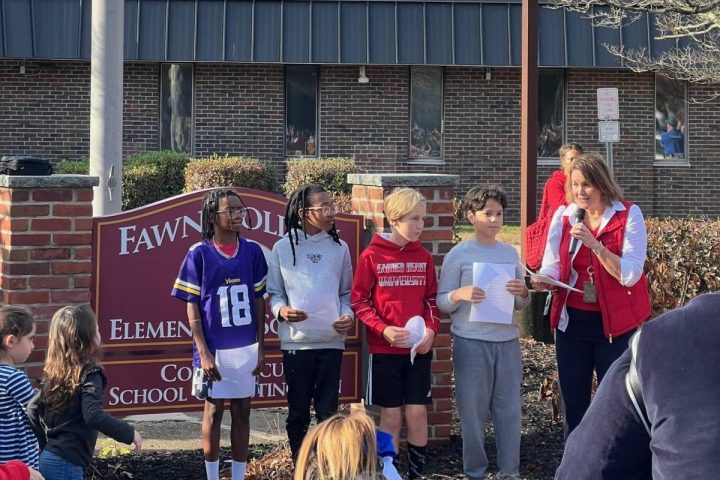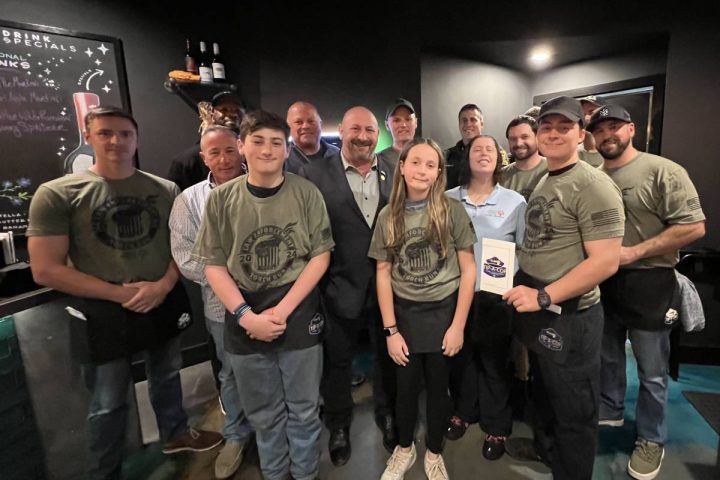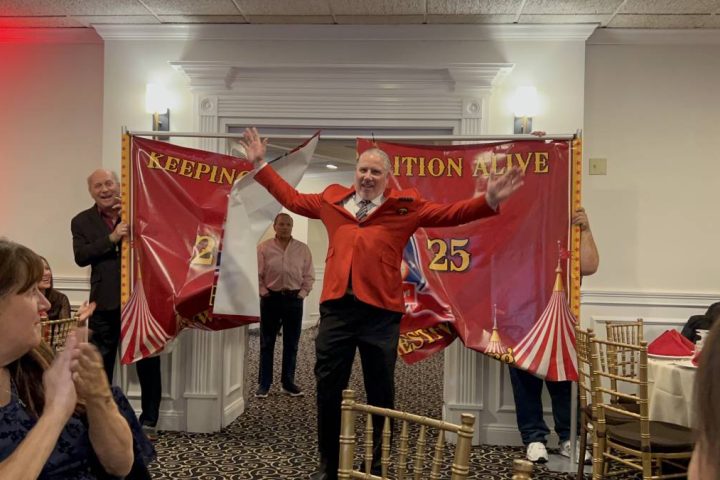Audra Westphal, co-president of the Monroe Special Education Parent Teacher Association, shared how parents tell her their children hold it together in school all day with tremendous effort, only to come home and experience the “after school crash.”
The after school crash was among the topics of conversation had by parents and educators attending a Monroe SEPTA meeting at Masuk High School Thursday night.
“If it’s not consistent at home, it’s not going to work,” Westphal said of individual education plans.
SEPTA brings people with an interest in special education together, strives to ensure all children have the opportunity to reach their full potential, and creates an atmosphere where families can learn from experts and share their own experiences of raising a child with special needs.
Monroe SEPTA is one of six Connecticut SEPTA chapters, which include Avon, Hamden, Fairfield, Plymouth and Enfield.
Thursday night’s guest speakers were Tamara Shook and Christina Fensore Martinez, clinical supervisors from the Institute of Professional Practice, Inc. (IPPI), a human service organization, providing treatment and supports for people with special and educational needs throughout New England and Maryland.
Acting Superintendent of Schools Joseph Kobza and Darleen Fensore, assistant director of Student Support Services for Monroe public schools, also attended the meeting.
Growing support
Monroe SEPTA Co-Vice President Nancy Sorge called a membership drive and fundraising effort at Lakeside Nutrition on Dec. 19 a complete success.
Ray Giovanni, co-treasurer for SEPTA, said $234 was raised from a basket raffle, $80 from pictures with Santa, Lakeside Nutrition made a $160 donation, a raffle for a fire truck ride to school raised $10, and there were $60 in fees for new memberships.
In addition to the $544 raised at Lakeside Nutrition, Giovanni said another $160 was raised from Turning the Page book store, which donated 15 percent of that day’s profits to SEPTA.
“It was a good day,” he said. “Awareness is critical to us in advancing our mission.”
Giovanni said SEPTA will continue to raffle off fire truck rides, in which the winner gets a ride to school with four or five friends. Whether it is a Monroe, Stepney or Stevenson truck depends on where the child lives.
You could have the best plan but …
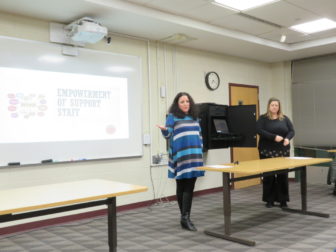
When doing applied behavior analysis, behaviorists look at what is most important to a child as a baseline, Martinez said, adding they use a team approach based on science and driven by data.
Whether a child has behaviors such as not listening in class or more destructive behavior, Shook said they work to decrease it and put positive behavior in its place.
“It does take a full team approach, ensuring everyone is on the same page for a plan,” she said.
Martinez and Shook said a highly skilled board certified behavior analyst could write your special education plan, but if the training and implementation is wrong or inconsistent it could lead to bad decision making, a loss of instructional time and to unnecessary supports being put in place.
They said staff must have a skilled point person to go to with questions.
Before training begins, it’s important to know what your staff’s qualifications are, according to the presentation. Shook went over different types of learning, such as observational.
When training special education support staff, Shook said IPPI uses computer based training to expose new staff to basic applied behavior analysis principles. They also tie observational learning to a written description of skills.
“We give them a staff written description of the skills and they practice it until they can show me they can do it,” Shook said. “If they have difficulty with a student, I work with them on multiple exemplars.”
Martinez and Shook also do rehearsals and give private feedback to teachers.
Are you motivated?
During their presentation, Shook and Martinez showed a video of behavioral psychologist E. Scott Geller giving a TED Talk on self motivation at Virginia Tech.
Geller talked about the difference between education and training, which is more hands on.
“Think of the leaders, teachers and supervisors who inspire us to go beyond the call of duty,” he said.
To determine whether support staff feel empowered and self motivated, Geller said to ask them three questions:
Can you do it? Do you have the time and training to do what we ask?
Will it work? Do you believe it will work?
Is it worth it?
“When you feel competent about doing worthwhile work, you’re more motivated,” Geller said.

